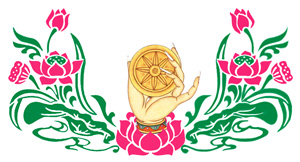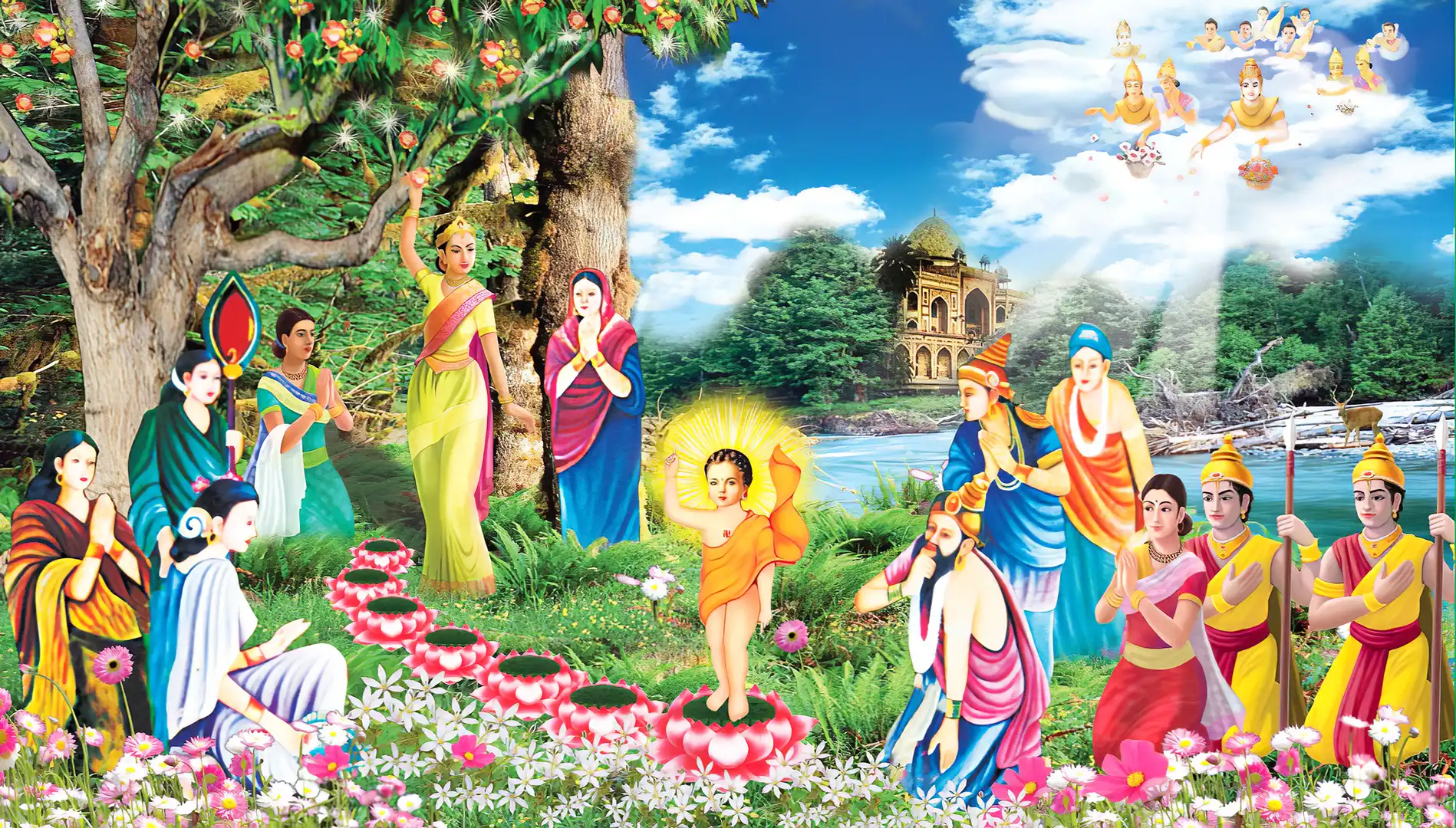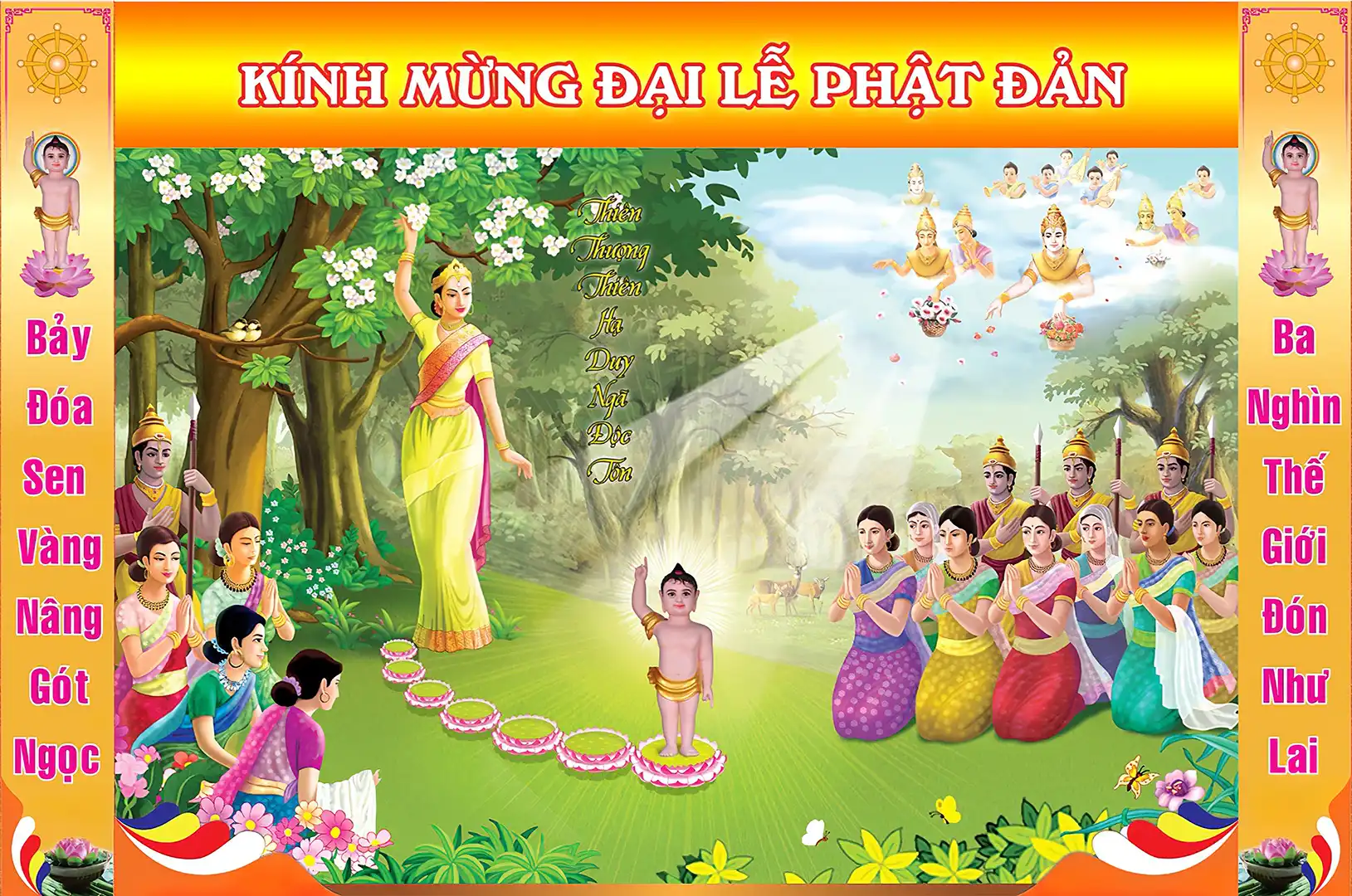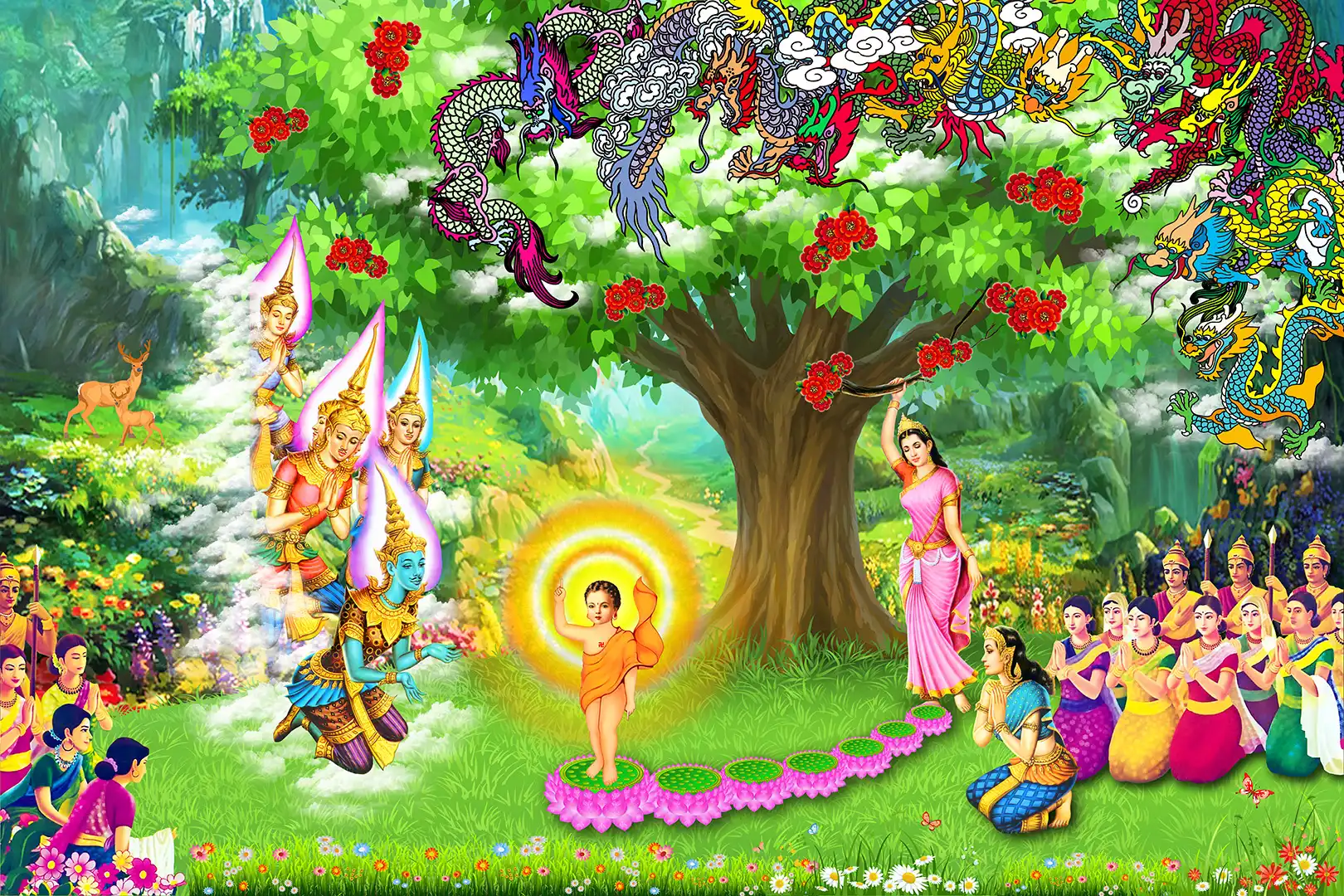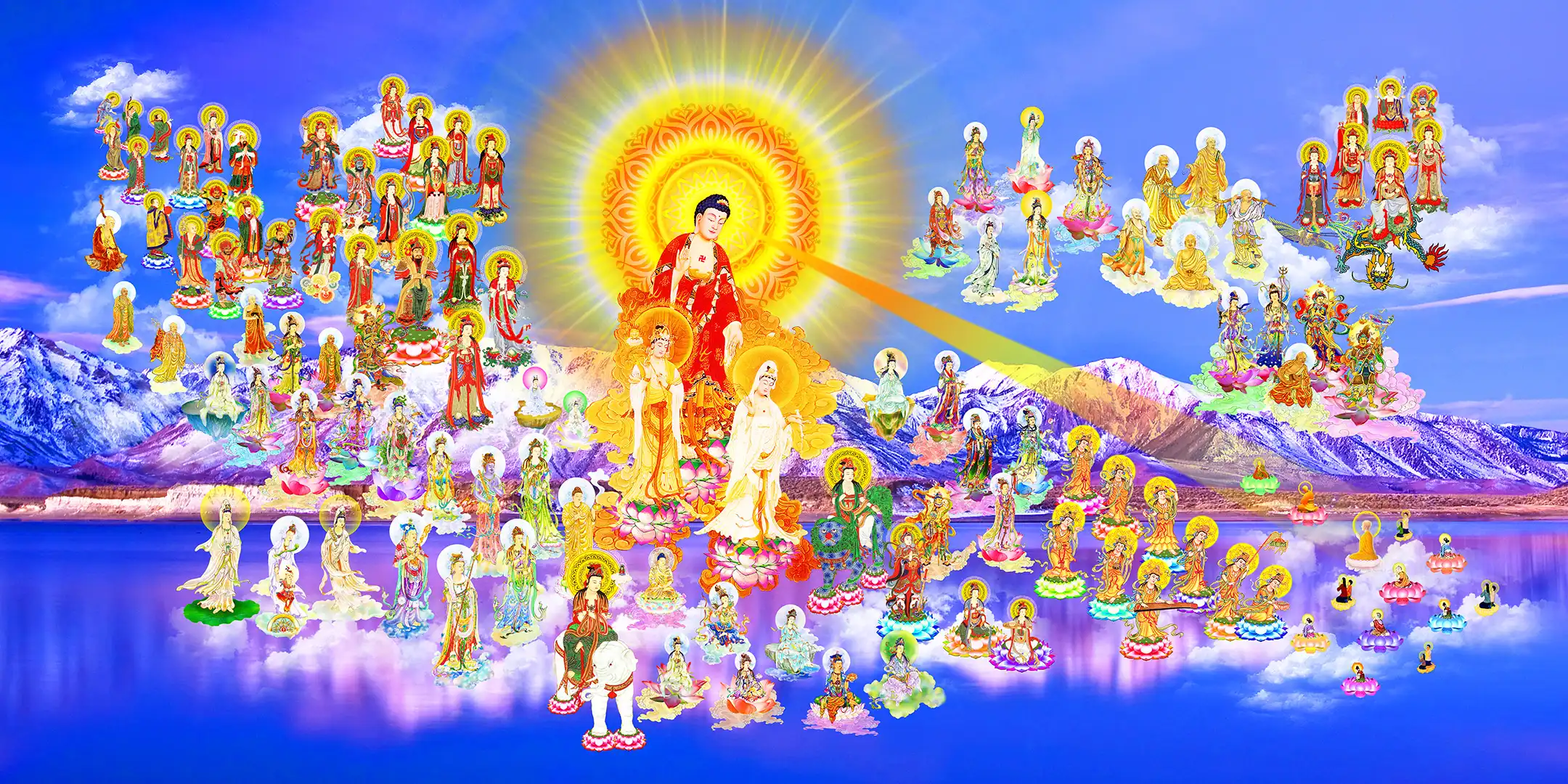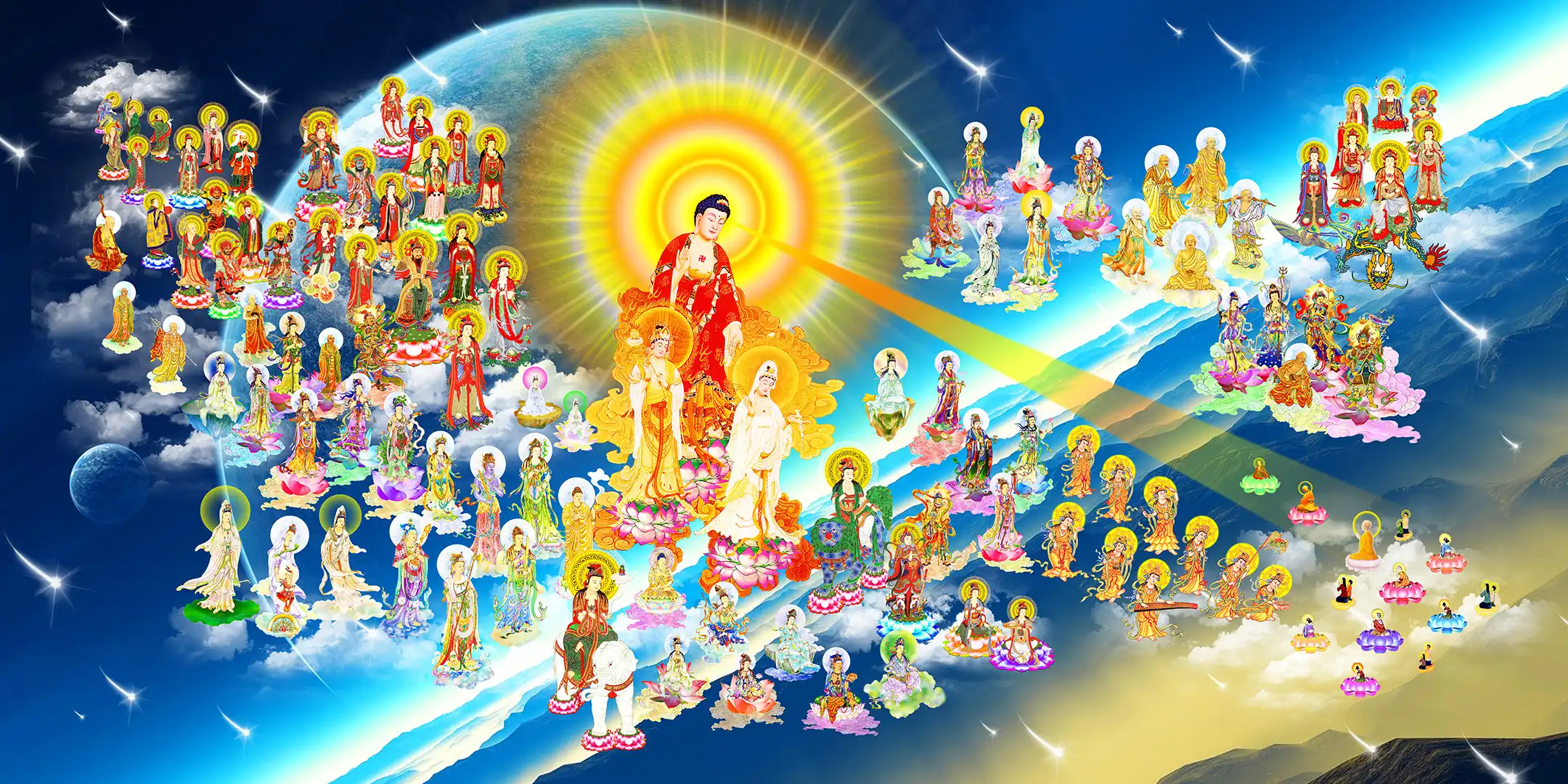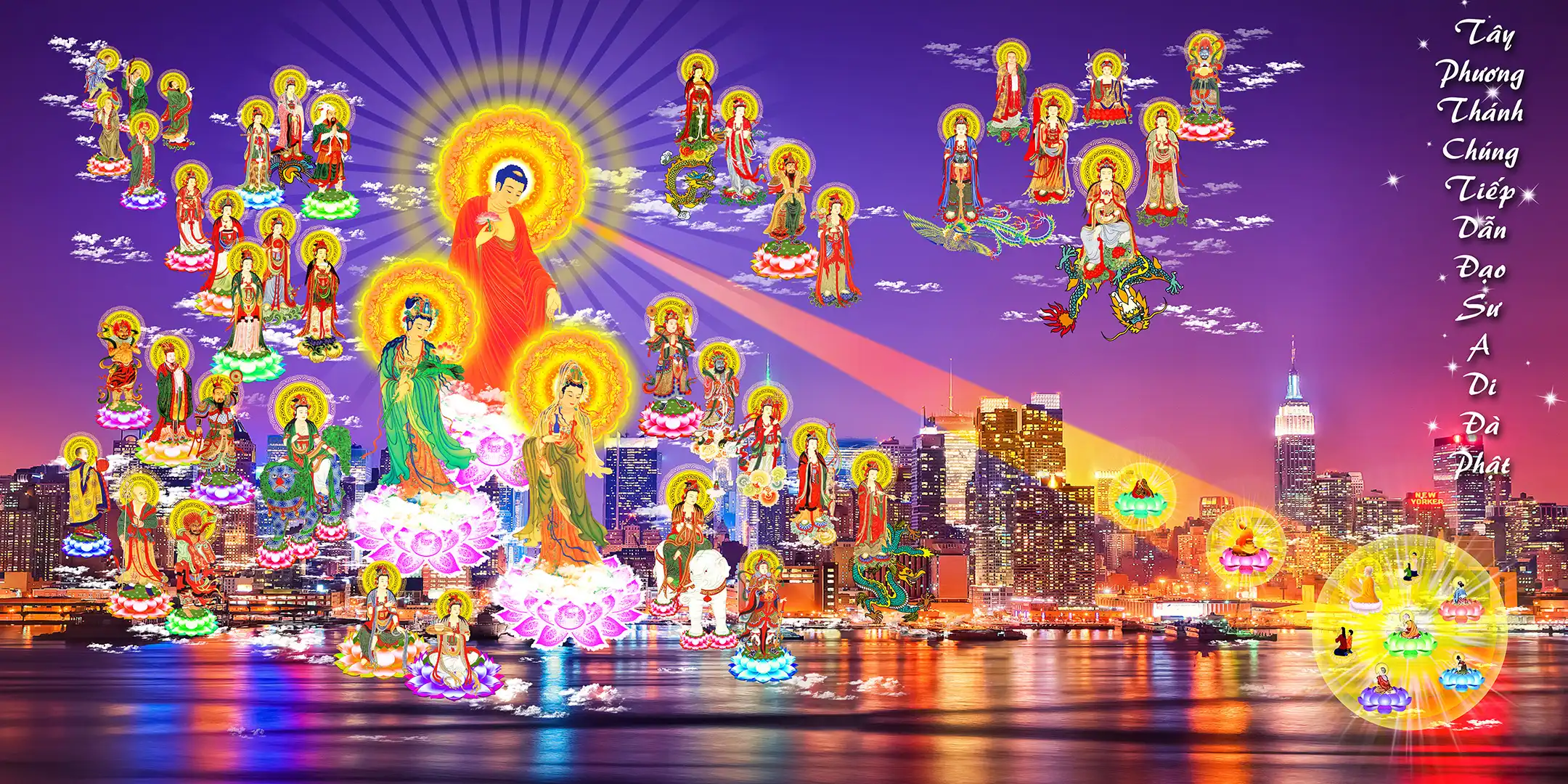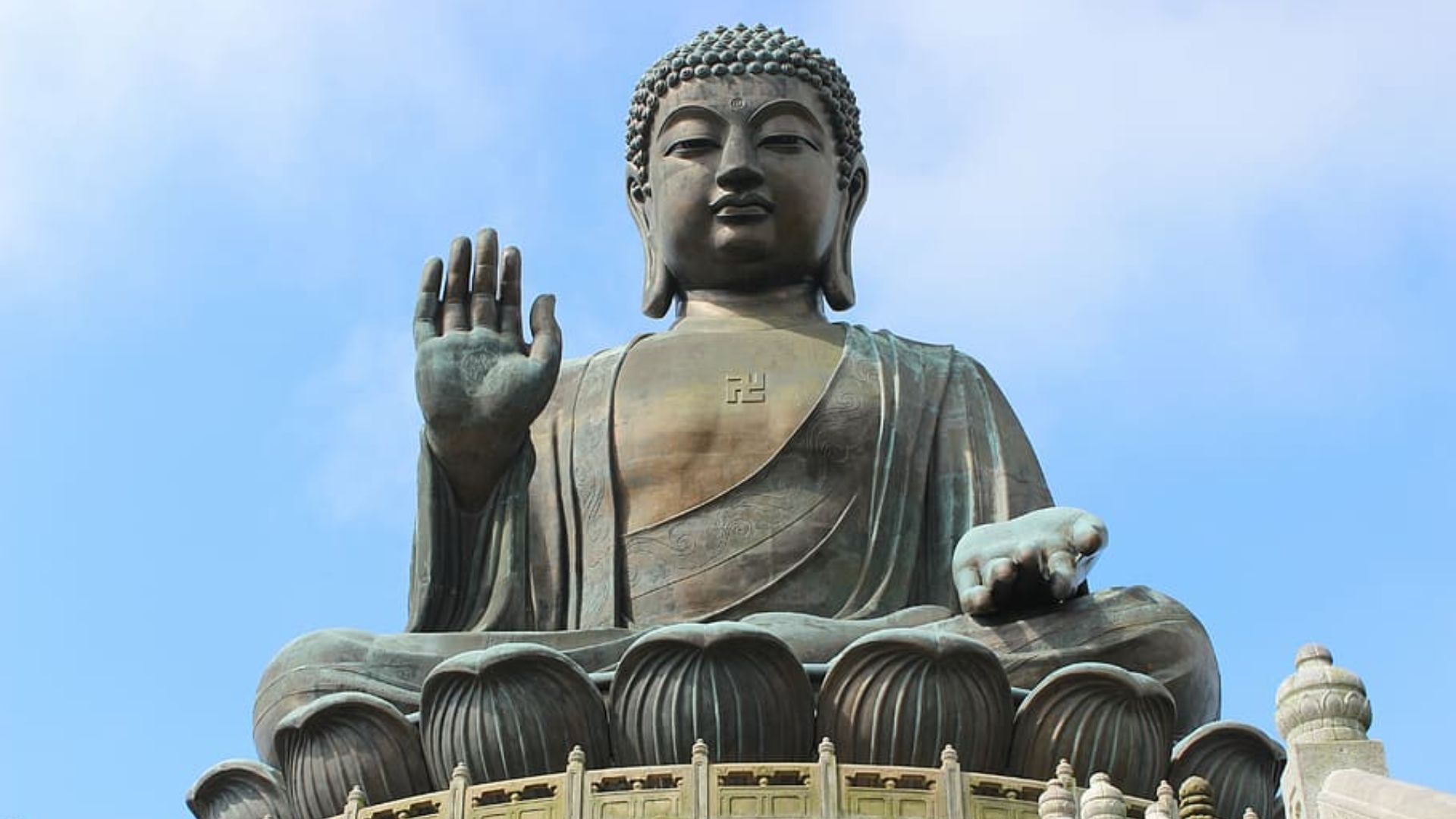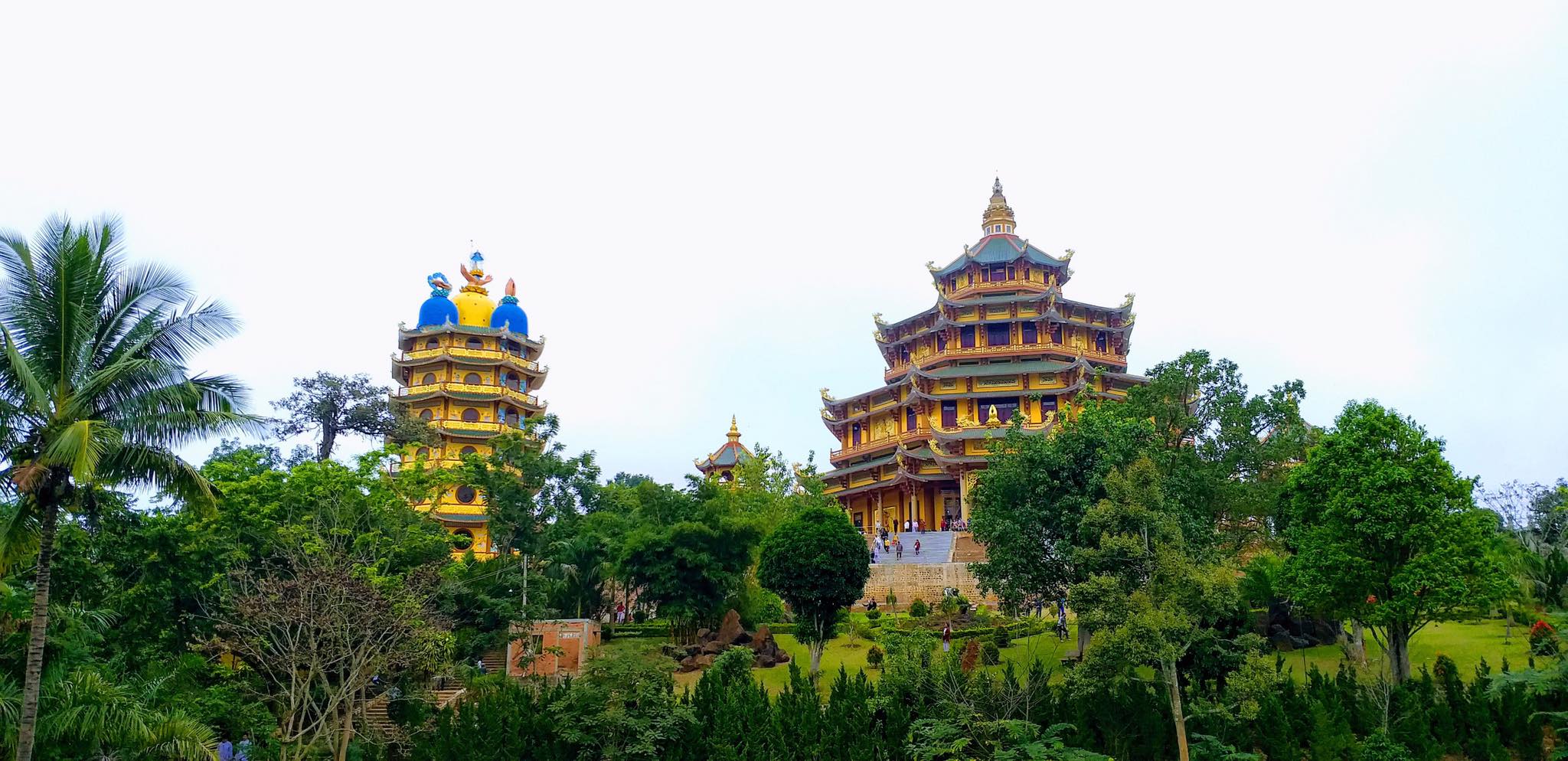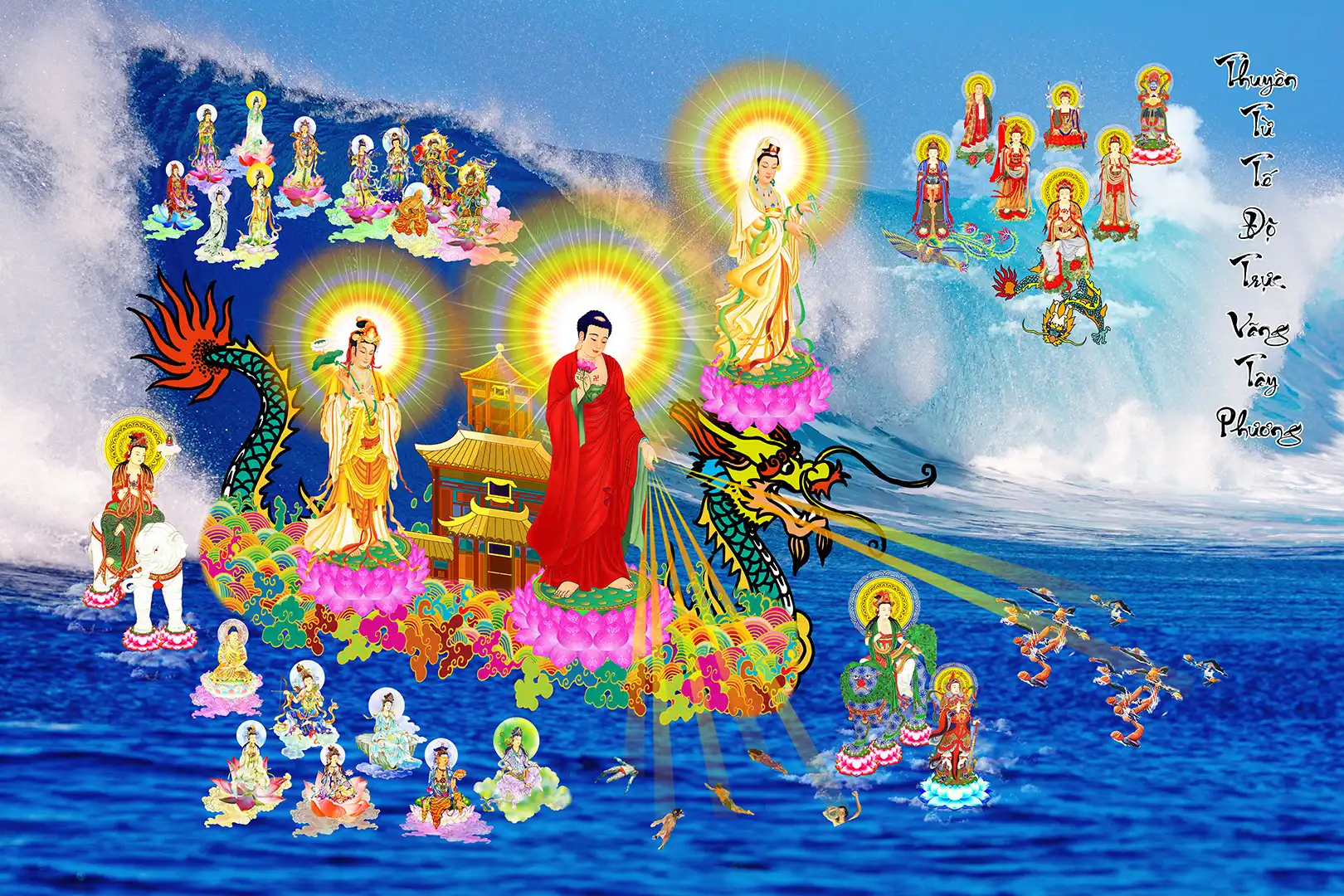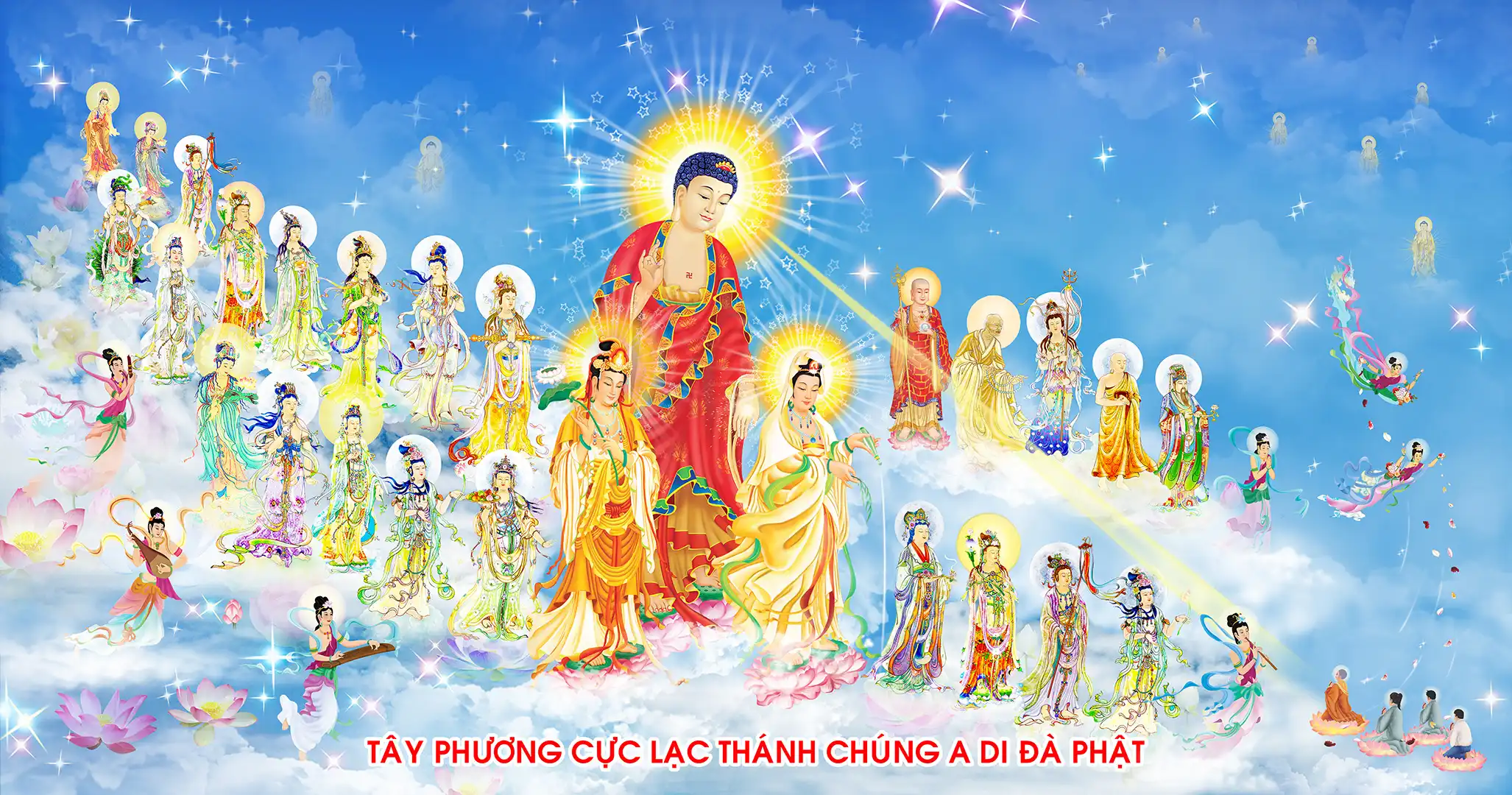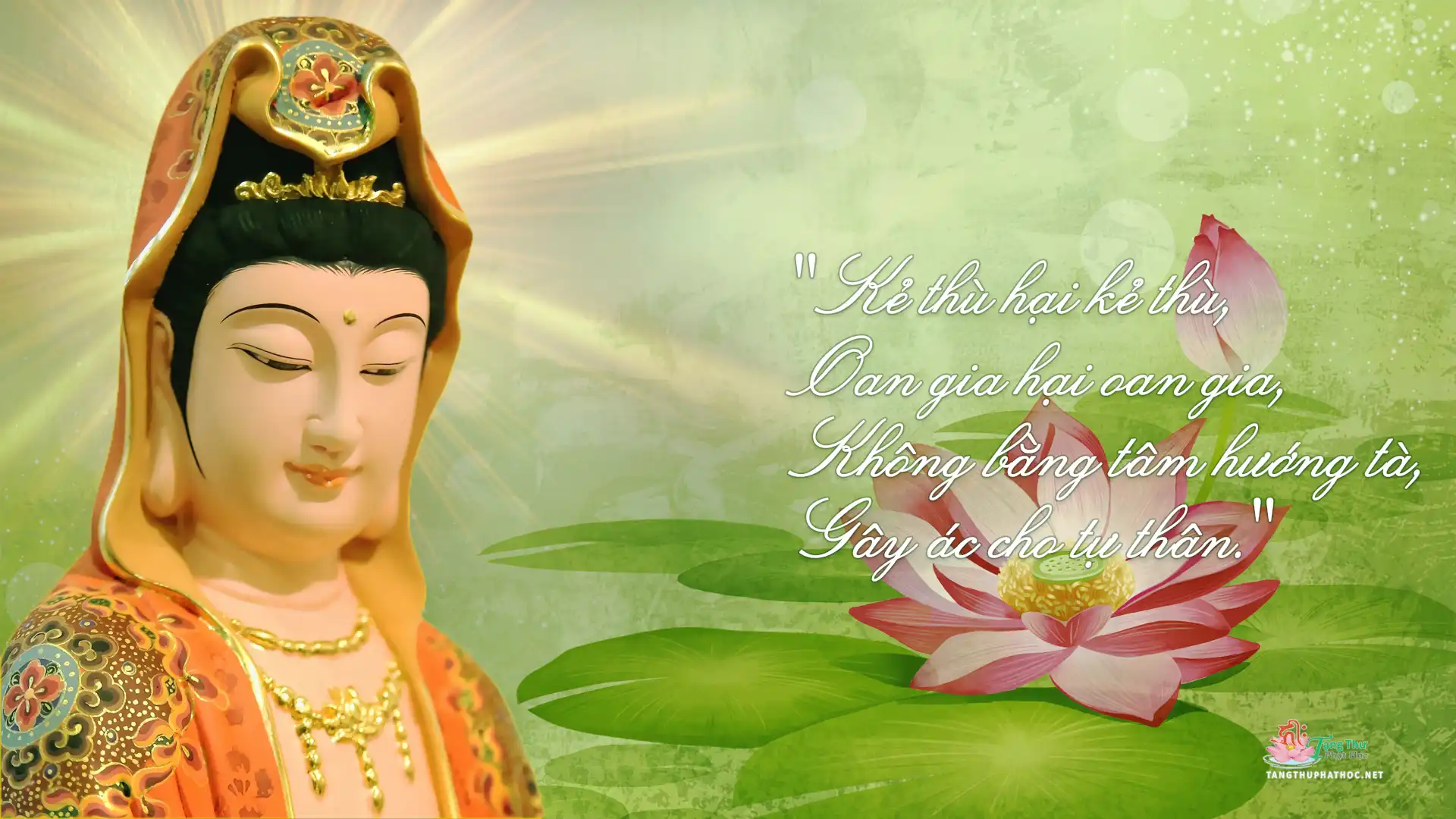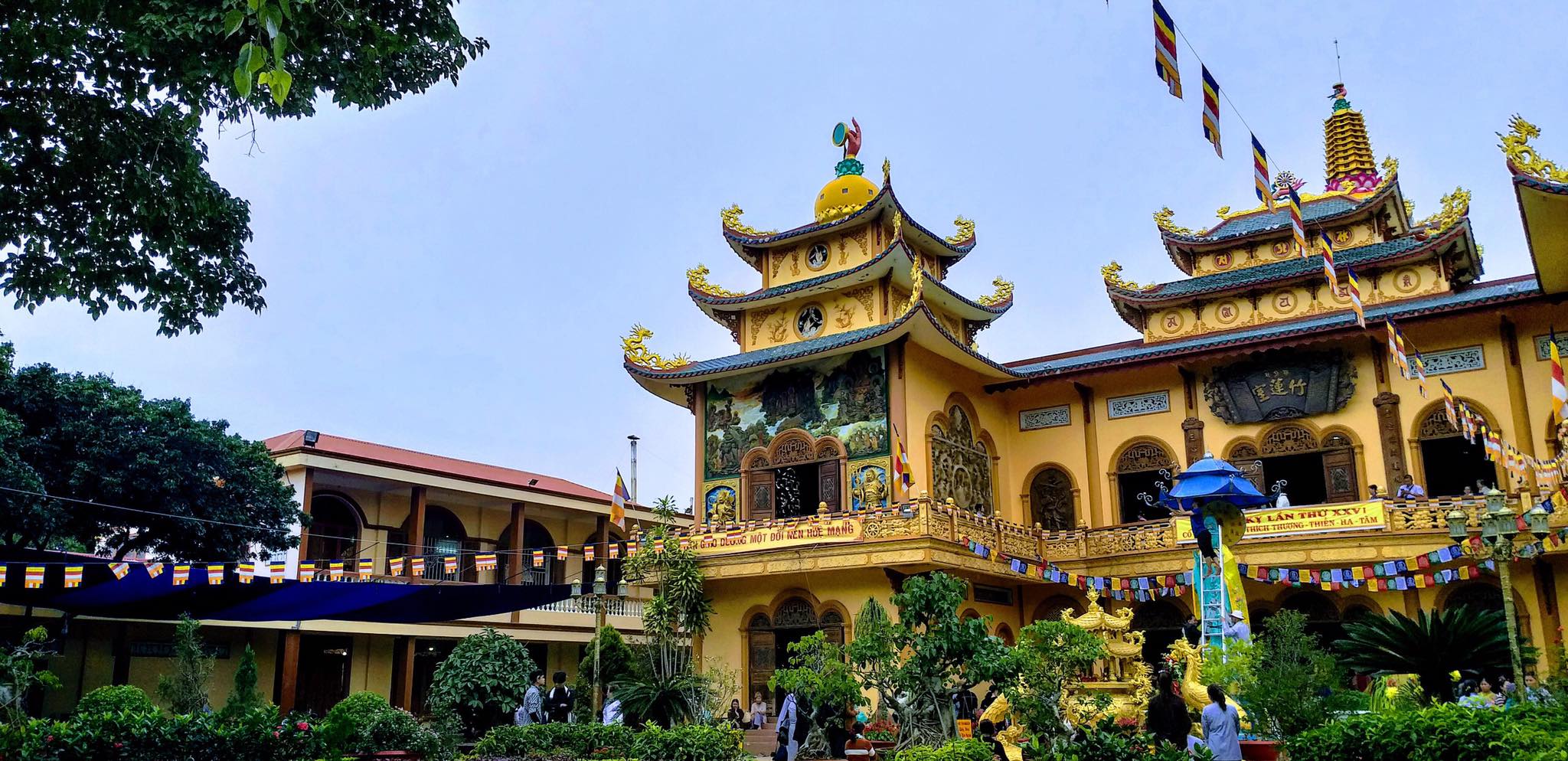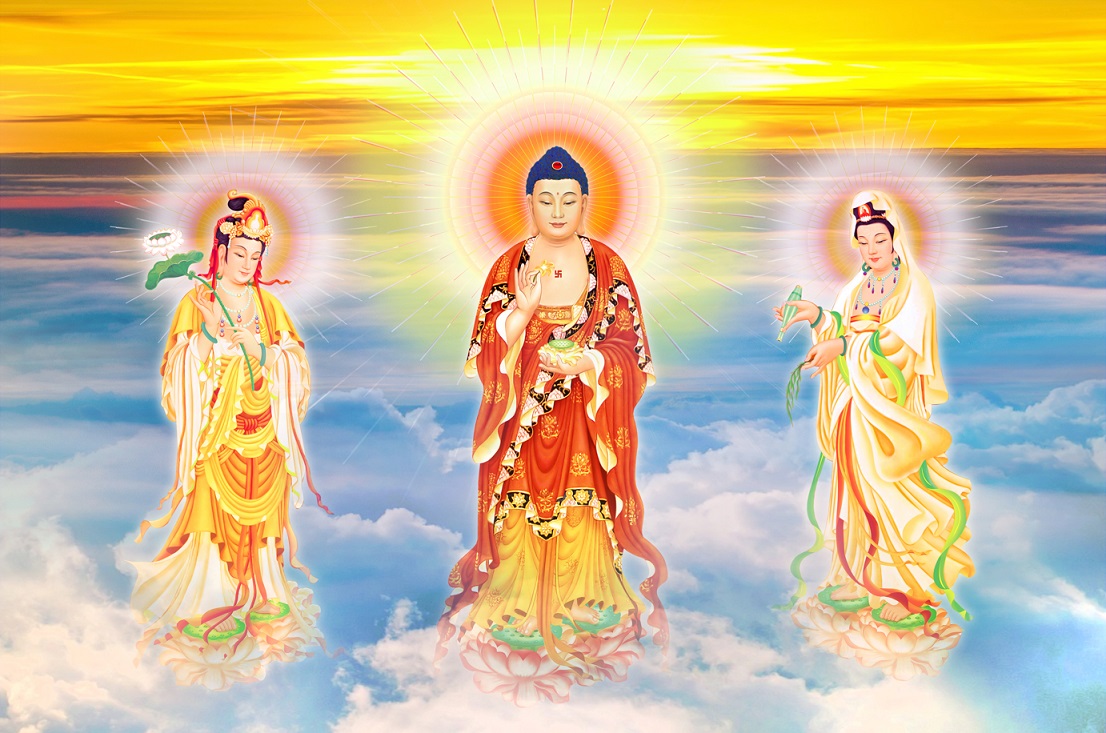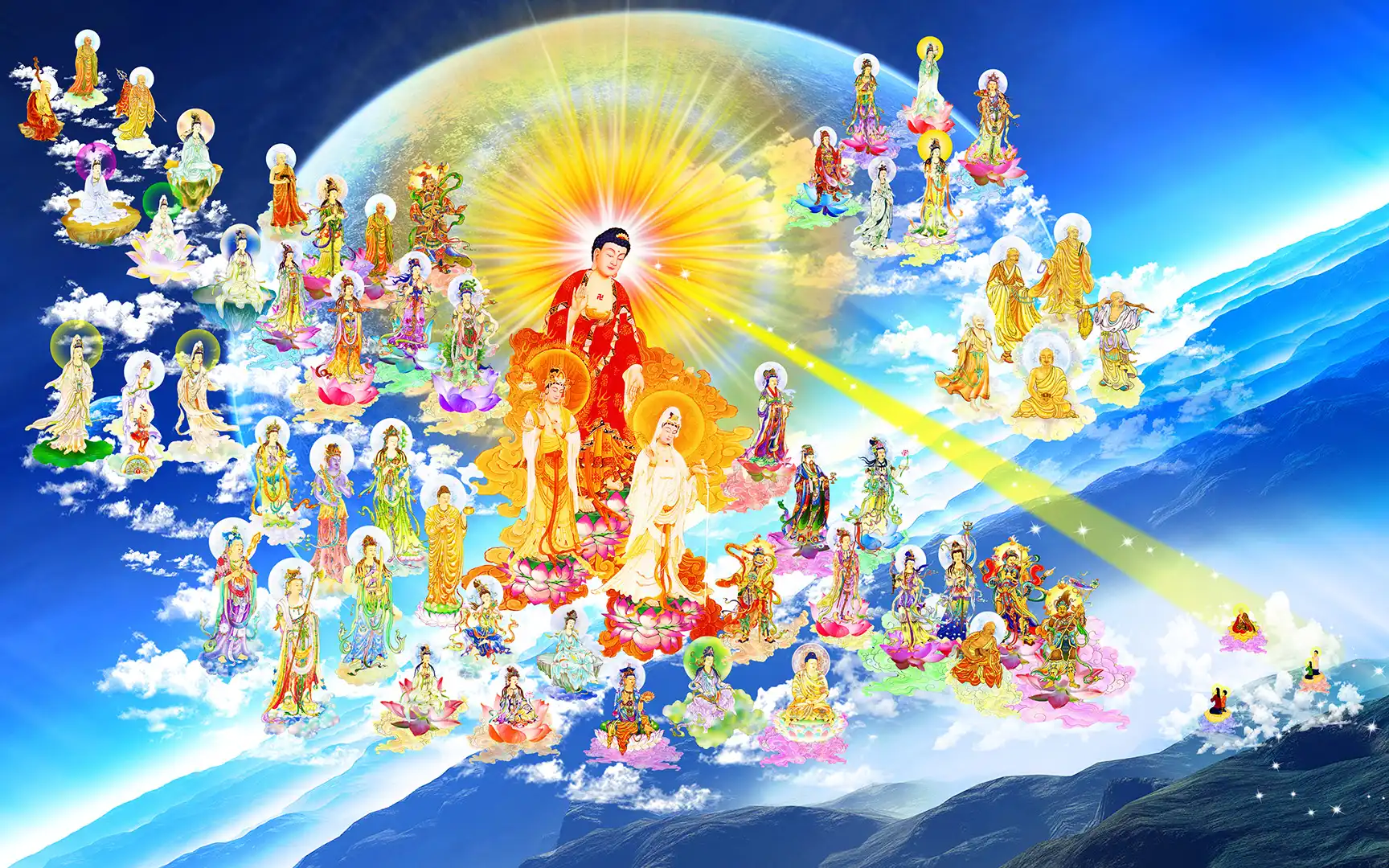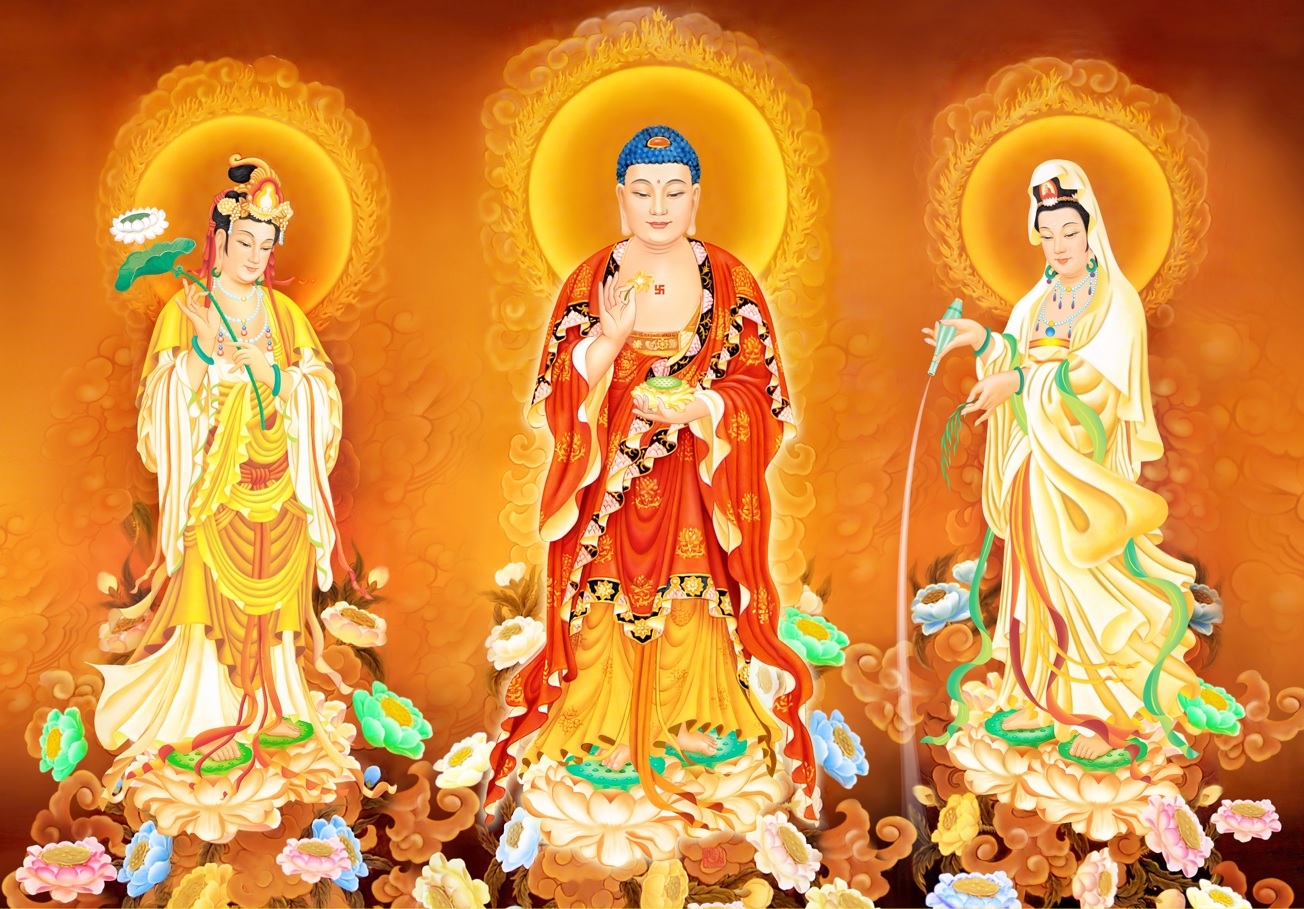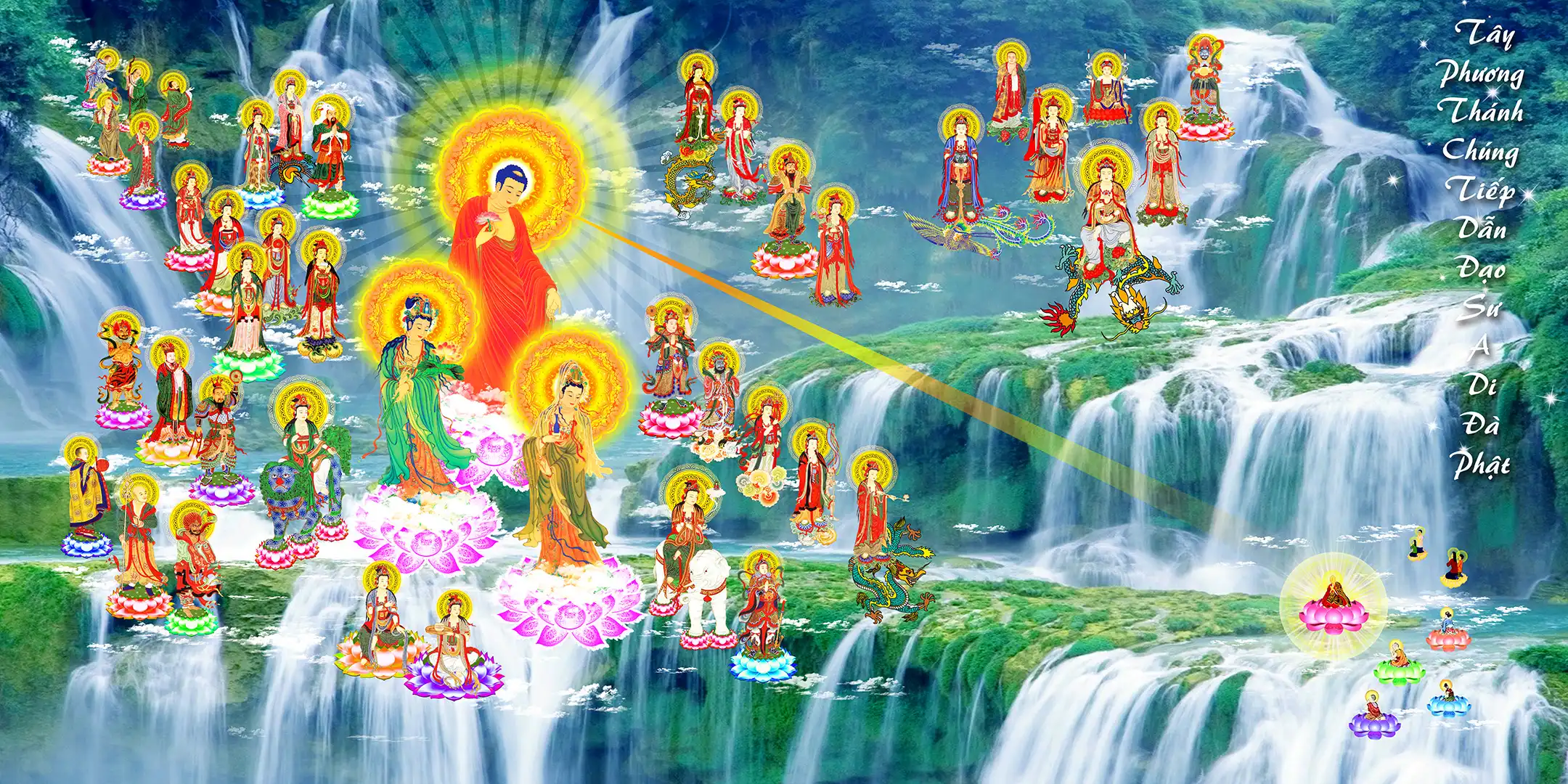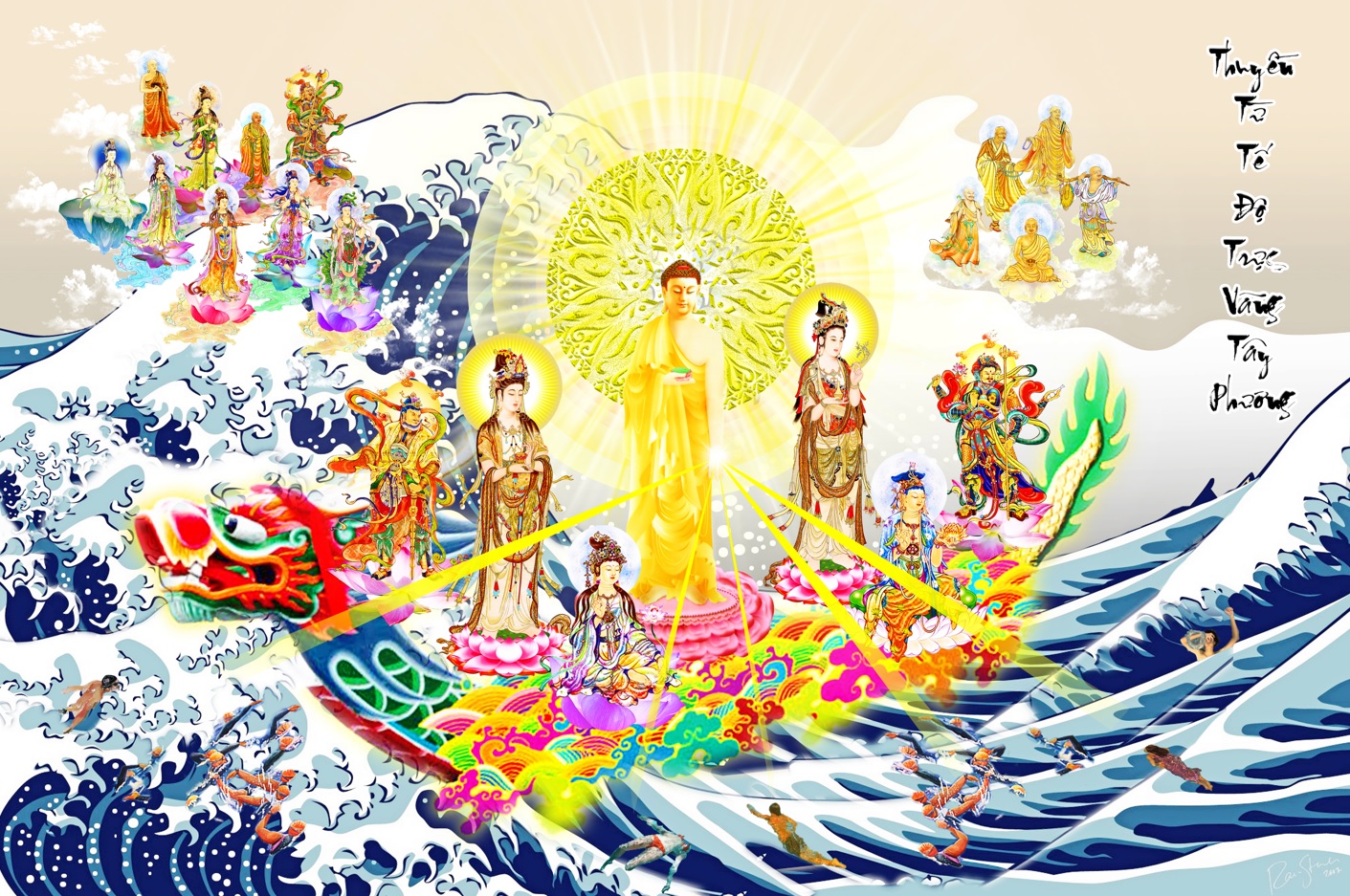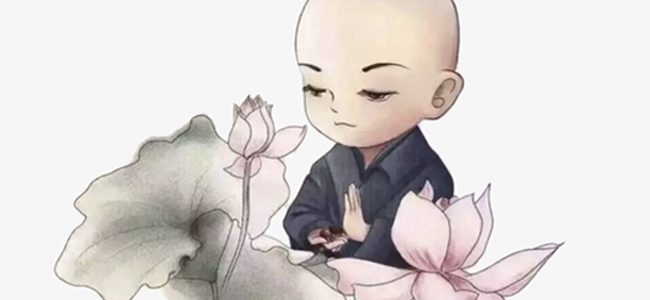Tổ Đình Minh Đăng Quang
PHẬT HỌC TỪ ĐIỂN – BUDDHIST DICTIONARY
Thiện Phúc
PHỤ LỤC (APPENDICES)
PHỤ LỤC F – Appendix F
Kinh Pháp Bảo Ðàn
The Jewel Platform Sutra
Phẩm thứ hai—The second chapter—Bát Nhã—Prajna
Ngày khác, Vi Sứ Quân thưa thỉnh, Tổ đăng tòa bảo đại chúng rằng: “Tất cả nên tịnh tâm niệm Ma Ha Bát Nhã Ba La Mật Ða.” Lại bảo: “Nầy thiện tri thức, trí Bát Nhã Bồ Ðề, người đời vốn tự có, chỉ nhân vì tâm mê không thể tự ngộ, phải nhờ đến đại thiện tri thức chỉ đường mới thấy được tánh. Phải biết người ngu người trí, Phật tánh vốn không khác, chỉ duyên mê ngộ không đồng, do đó nên có ngu trí. Nay tôi vì nói pháp Ma Ha Bát Nhã Ba La Mật, khiến cho các ông, mỗi người được trí tuệ, nên chí tâm lắng nghe, tôi vì các ông mà nói. Này thiện tri thức, có người trọn ngày miệng tụng Bát Nhã nhưng không biết tự tánh Bát Nhã, ví như nói ăn mà không no, miệng chỉ nói không, muôn kiếp chẳng được thấy tánh, trọn không có ích gì. Này thiện tri thức, “Ma Ha Bát Nhã Ba La Mật” là tiếng Phạn, dịch là đại trí tuệ đến bờ kia, nó phải là hành nơi tâm, không phải tụng ở miệng. Miệng tụng mà tâm chẳng hành như huyễn như hóa, như sương, như điển. Miệng niệm mà tâm hành ắt tâm và miệng hợp nhau, bản tánh là Phật, lìa tánh không riêng có Phật—The following day, at the invitation of Magistrate Wei, the Master took his seat and said to the great assembly, “All of you purify your minds and think about Maha Prajna Paramita.” He then said, “All-Knowing Advisors, the wisdom of Bodhi and Prajna is originally possessed by worldly people themselves. It is only because their minds are confused that they are unable to enlighten themselves and must rely on a great Good Knowing Advisor who can lead them to see their Buddha-nature. You should know that the Buddha-nature of stupid and wise people is basically not different. It is only because confusion and enlightenment are different that some are stupid and some are wise. I will now explain for you the Maha Prajna Paramita Dharma in order that each of you may become wise. Pay careful attention and I will explain it to you.” Good Knowing Advisors, worldly people recite ‘Prajna’ with their mouths all day long and yet do not recognize the Prajna of their self-nature. Just as talking about food will not make you full, so, too, if you speak of emptiness you will not see your own nature in ten thousand ages. In the end, you will not have obtained any benefit. Good Knowing Advisors, Maha Prajna Paramita is a Sanskrit word which means ‘great wisdom which has arrived at the other shore.’ It must be practiced in the mind, and not just recited in words. When the mouth recites and the mind does not practice, it is like an illusion, a transformation, dew drops, or lightning. However, when the mouth recites and the mind practices, then mind and mouth are in mutual accord. One’s own original nature is Buddha; apart from the nature there is no other Buddha.
Sao gọi là Ma Ha? Ma Ha là lớn, tâm lượng rộng lớn ví như hư không, không có bờ mé, cũng không có vuông tròn, lớn nhỏ, cũng không phải xanh, vàng, đỏ, trắng, cũng không có trên dưới, dài ngắn, cũng không sân, không hỷ, không phải, không quấy, không thiện không ác, không có đầu, không có đuôi, cõi nước chư Phật, trọn đồng với hư không, diệu tánh của người đời vốn không, không có một pháp có thể được, tự tánh chơn không cũng lại như thế. Này thiện tri thức, chớ nghe tôi nói “không” liền chấp không, thứ nhất là không nên chấp “không,” nếu để tâm “không” mà ngồi tịnh tọa, đó tức là chấp “vô ký không.” Này thiện tri thức, thế giới hư không hay bao hàm vạn vật sắc tượng, mặt trời, mặt trăng, sao, núi, sông, đất liền, khe suối, cỏ cây, rừng rậm, người lành người dữ, pháp lành pháp dữ, thiên đường địa ngục, tất cả biển lớn, các núi Tu Di, thảy ở trong hư không. Tánh của người đời lại cũng như thế. Này thiện tri thức, tự tánh hay bao hàm muôn pháp ấy là đại. Muôn pháp ở trong tự tánh của mọi người, nếu thấy tất cả người ác cùng với lành, trọn đều không có chấp, không có bỏ, cũng không nhiễm trước, tâm cũng như hư không, gọi đó là đại, nên gọi là Ma Ha—What is meant by Maha? Maha means ‘great.’ The capacity of the mind is vast and great like empty space, and has no boundaries. It is not square or round, great or small. Neither is it blue, yellow, red, white. It is not above or below, or long or short. It is without anger, without joy, without right, without wrong, without good, without evil, and it has no head or tail. All Buddha-lands are ultimately the same as empty space. The wonderful nature of worldly people is originally empty, and there is not a single dharma which can be obtained. The true emptiness of the self-nature is also like this. Good Knowing Advisors, do not listen to my explanation of emptiness and then become attached to emptiness. The most important thing is to avoid becoming attached to emptiness. If you sit still with an empty mind you will become attached to undifferentiated emptiness. Good Knowing Advisors, The emptiness of the universe is able to contain the forms and shapes of the ten thousand things: the sun, moon, and stars; the mountains, rivers, and the great earth; the fountains, springs, streams, torrents, grasses, trees, thickets, and forests; good and bad people, good and bad dharmas, the heavens and the hells, all the great seas, Sumeru and all moutains; all are contained within emptiness. The emptiness of the nature of worldly men is also like this. Good Knowing Advisors, the ability of one’s own nature to contain the ten thousand dharmas is what is meant by ‘great.’ The myriad dharmas are within the nature of all people. If you regard all people, the bad as well as the good, without grasping or rejecting, without producing a defiling attachment, your mind will be like empty space. Therefore, it is said to be ‘great,’ or ‘Maha.’
-Này thiện tri thức, người mê miệng nói, người trí tâm hành. Lại có người mê, để tâm rỗng không, ngồi tịnh tọa, trăm việc không cho nghĩ tự gọi là đại, bọn người nầy không nên cùng họ nói chuyện, vì họ là tà kiến. Này thiện tri thức, tâm lượng rộng lớn khắp giáp cả pháp giới, dụng tức rõ ràng phân minh, ứng dụng liền biết tất cả, tất cả tức một, một tức tất cả, đi lại tự do, tâm thể không bị ngăn ngại tức là Bát Nhã. Này thiện tri thức, tất cả trí Bát Nhã đều từ tự tánh sanh, chẳng từ bên ngoài vào, chớ lầm dụng ý nên gọi là chơn chánh tự dụng. Một chơn thì tất cả chơn, tâm lượng rộng lớn không đi theo con đường nhỏ, miệng chớ trọn ngày nói không mà trong tâm chẳng tu hạnh nầy, giống như người phàm tự xưng là quốc vương trọn không thể được, không phải là đệ tử của ta—Good Knowing Advisors, the mouth of the confused person speaks, but the mind of the wise person practices. There are deluded men who sit still with empty minds, vainly thinking of nothing and declaring that to be something great. One should not speak with these people because of their deviant views. GoodKnowing Advisors, the capacity of the mind is vast and great, encompassing the Dharma realm. Its function is to understand clearly and distinctly. Its correct function is to know all. All is one; one is all. Coming and going freely, the mind’s substance is unobstructed. That is Prajna. Good Knowing Advisors, all Prajna wisdom is produced from one’s own nature; it does not enter from outside. Using the intellect correctly is called the natural function of one’s true nature. One truth is all truth. The mind has the capacity for great things, and is not meant for practicing petty ways. Do not talk about emptiness with your mouth all day and in your mind fail to cultivate the conduct that you talk of. That would be like a common person calling himself the king of a country, which cannot be. People like that are not my disciples.
-Này thiện tri thức, sao gọi là Bát Nhã? Bát Nhã nghĩa là “trí tuệ.” Tất cả chỗ, tất cả thời, mỗi niệm không ngu, thường hành trí huệ tức là Bát Nhã hạnh. Một niệm ngu khởi lên, tức là Bát Nhã bặt. Một niệm trí khởi lên, tức là Bát Nhã sanh. Người đời ngu mê không thấy Bát Nhã, miệng nói Bát Nhã mà trong tâm thường ngu, thường tự nói ta tu Bát Nhã, niệm niệm nói không nhưng không biết được chơn không. Bát Nhã không có hình tướng, tâm trí tuệ ấy vậy. Nếu khởi hiểu như thế tức gọi là Bát Nhã trí—Good Knowing Advisors, what is meant by ‘Prajna?’ Prajna in our language means wisdom. Everywhere and at all times, in thought after thought, remain undeluded and practice wisdom constantly; that is Prajna conduct. Prajna is cut off by a single deluded thought. By one wise thought, Prajna is produced. Worldly men, deluded and confused, do not see Prajna. They speak of it with their mouths, but their minds are always deluded. They constantly say of themselves, ‘I cultivate Prajna!’ And though they continually speak of emptiness, they are unaware of true emptiness. Prajna, without form or mark, is just the wisdom of the mind. If thus explained, this is Prajna wisdom.
Sao gọi là Ba La Mật? Ðây là tiếng Phạn, có nghĩa là “đến bờ kia,” giải nghĩa là “lìa sanh diệt.” Chấp cảnh thì sanh diệt khởi như nước có sóng mồi, tức là bờ bên nầy, lìa cảnh thì không sanh diệt như nước thường thông lưu, ấy gọi là bờ kia, nên gọi là Ba La Mật—What is meant by Paramita? It is a Sanskrit word which in our language means ‘arrived at the other shore,’ and is explained as ‘apart from production and extinction.’ When one is attached to states of being, production and extinction arise like waves. States of being, with no production or extinction, is like free flowing water. That is what is meant by ‘the other shore.’ Therefore, it is called ‘Paramita.’
Này thiện tri thức, người mê miệng tụng, chính khi đang tụng mà có vọng, có quấy; niệm niệm nếu hành Bát Nhã, ấy gọi là chơn tánh. Người ngộ được pháp nầy, ấy là pháp Bát Nhã, người tu hạnh nầy, ấy là hạnh Bát Nhã. Không tu tức là phàm, một niệm tu hành, tự thân đồng với Phật—Good Knowing Advisors, deluded people recite with their mouths, but while they recite they live in falsehood and in error. When there is practice in every thought, that is the true nature. You should understand this dharma, which is the Prajna dharma; and cultivate this conduct, which is the Prajna conduct. Not to cultivate is to be a common person, but in a single thought of cultivation, you are equal to the Buddhas.
Này thiện tri thức, phàm phu tức Phật, phiền não tức Bồ Ðề. Niệm trước mê tức phàm phu, niệm sau ngộ tức Phật; niệm trước chấp cảnh tức phiền não, niệm sau lìa cảnh tức Bồ Ðề—Good Knowing Advisors, common people are Buddhas and affliction is Bodhi. The deluded thoughts of the past are thoughts of a common person. Enlightened future thoughts are the thoughts of a Buddha. Past thoughts attached to states of being are afflictions. And, future thoughts separate from states of being are Bodhi.
Này thiện tri thức, Ma Ha Bát Nhã Ba La Mật tối tôn, tối thượng, tối đệ nhất, không trụ, không qua cũng không lại, chư Phật ba đời thảy đều từ trong đó mà ra. Phải dùng đại trí huệ này đập phá ngũ uẩn, phiền não, trần lao, tu hành như đây quyết định thành Phật đạo, biến tam độc thành giới định huệ—Good Knowing Advisors, Maha Prajna Paramita is the most honored, the most supreme, the foremost. It does not stay; it does not come or go. All Buddhas of the three periods of time emerge from it. You should use great wisdom to destroy affliction, defilement and the five skandhic heaps. With such cultivation as that, you will certainly realize the Buddha Way, transforming the three poisons into morality, concentration, and wisdom.
Này thiện tri thức, pháp môn của tôi đây từ một Bát Nhã phát sanh ra tám muôn bốn ngàn trí tuệ. Vì cớ sao? Vì người đời có tám muôn bốn ngàn trần lao, nếu không có trần lao thì trí huệ thường hiện, chẳng lìa tự tánh. Người ngộ pháp nầy tức là vô niệm, vô ức, vô trước, chẳng khởi cuống vọng, dùng tánh chơn như của mình, lấy trí huệ quán chiếu, đối với tất cả pháp không thủ không xả, tức là thấy tánh thành Phật đạo—Good Knowing Advisors, my Dharma-door produces 84,000 wisdom from the one Prajna. Why? Because worldly people have 84,000 kinds of defilement. In the absence of defilement, wisdom is always present since it is not separate from the self-nature. Understand this dharma is simply no-thought, no-remembrance, non-attachment and the non-production of falsehood and error. Use your own true-suchness nature and, by means of wisdom, contemplate and illuminate all dharmas without grasping or rejecting them. That is to see one’s own nature and realize the Buddha Way.
Này thiện tri thức, nếu muốn vào pháp giới thậm thâm và Bát Nhã Tam Muội thì phải tu Bát Nhã hạnh, phải trì tụng Kinh Kim Cang Bát Nhã, tức được thấy tánh. Nên biết kinh nầy công đức vô lượng vô biên, trong kinh đã khen ngợi rõ ràng, không thể nói đầy đủ được. Pháp môn nầy là tối thượng thừa, vì những người đại trí mà nói, vì những người thượng căn mà nói. Những người tiểu căn tiểu trí nghe pháp nầy, tâm sanh ra không tin. Vì cớ sao? Ví như có một trận mưa lớn, cả cõi nước, thành ấp, chợ búa đều bị trôi giạt cũng như trôi giạt những lá táo. Nếu trận mưa lớn đó mưa nơi biển cả thì không tăng không giảm. Như người đại thừa, hoặc người tối thượng thừa nghe Kinh Kim Cang thì khai ngộ, thế nên biết bản tánh họ tự có trí Bát Nhã, tự dùng trí huệ thường quán chiếu, nên không nhờ văn tự, thí dụ như nước mưa không phải từ trời mà có, nguyên là từ rồng mà dấy lên, khiến cho tất cả chúng sanh, tất cả cỏ cây, hữu tình vô tình thảy đều được đượm nhuần. Trăm sông các dòng đều chảy vào biển cả, hợp thành một thể, trí huệ Bát Nhã nơi bản tánh chúng sanh lại cũng như thế—Good Knowing Advisors, if you wish to enter the extremely deep Dharma realm and the Prajna samadhi, you must cultivate the practice of Prajna. Hold and recite the ‘Diamond Prajna Paramita Sutra’ and that way you will see your own nature. You should know that the merit and virtue of this sutra is immeasurable, unbounded, and indescribable, as the Sutra text itself clearly states. This Dharma-door is the Superior Vehicle, that is taught to the people of great wisdom and superior faculties. When people of limited faculties and wisdom hear it, their minds give rise to doubt. Why is that? Take this example, the rains which the heavenly dragons shower on Jambudvipa. Cities and villages drift about in the flood like thorns and leaves. But if the rain falls on the great sea, its water neither increases nor decreases. If people of the Great Vehicle, the Most Superior Vehicle, hear the Diamond Sutra, their minds open up, awaken and understand. Then they know that their original nature itself possesses the wisdom of Prajna. Because they themselves use this wisdom constantly to contemplate and illuminate. And they do not rely on written words. Take for example, the rain does not come from the sky. The truth is that the dragons cause it to fall in order that all living beings, all plants and trees, all those with feeling and those without feeling may receive its moisture. In a hundred streams, it flows into the great sea and there unites in one substance. The wisdom of the Prajna of the original nature of living beings acts the same way.
Này thiện tri thức, người tiểu căn nghe pháp môn đốn giáo nầy ví như là cỏ cây, cội gốc của nó vốn nhỏ, nếu bị mưa to thì đều ngã nghiêng không thể nào tăng trưởng được, người tiểu căn lại cũng như vậy, vốn không có trí huệ Bát Nhã cùng với người đại trí không sai biệt, nhơn sao nghe pháp họ không thể khai ngộ? Vì do tà kiến chướng nặng, cội gốc phiền não sâu, ví như đám mây lớn che kín mặt trời, nếu không có gió thổi mạnh thì ánh sáng mặt trời không hiện. Trí Bát Nhã cũng không có lớn nhỏ, vì tất cả chúng sanh tự tâm mê ngộ không đồng, tâm thể bên ngoài thấy có tu hành tìm Phật, chưa ngộ được tự tánh tức là tiểu căn. Nếu khai ngộ đốn giáo không thể tu ở bên ngoài, chỉ nơi tâm mình thường khởi chánh kiến, phiền não trần lao thường không bị nhiễm tức là thấy tánh—
-Good Knowing Advisors, when people of limited faculties hear this Sudden Teaching, they are like the plants and trees with shallow roots which, washed away by the great rain, are unable to grow. But at the same time, the Prajna wisdom which people of limited faculties possess is fundamentally no different from the Prajna that men of great wisdom possess. Hearing this Dharma, why do they not become enlightened? It is because the obstacle of their deviant views is a formidable one and the root of their afflictions is deep. It is like when thick clouds cover the sun. If the wind does not blow, the sunlight will not be visible. ‘Prajna’ wisdom is itself neither great nor small. Living beings differ because their own minds are either confused or enlightened. Those of confused minds look outwardly to cultivate in search of the Buddha. Not having awakened to their self-nature yet, they have small roots. When you become enlightened to the Sudden Teaching, you do not grasp onto the cultivation of external things. When your own mind constantly gives rise to right views, afflictions and defilement can never stain you. That is what is meant by seeing your own nature.
Này thiện tri thức, trong ngoài không trụ, đi lại tự do, hay trừ tâm chấp, thông đạt không ngại, hay tu hạnh nầy cùng kinh Bát Nhã vốn không sai biệt—Good Knowing Advisors, the ability to cultivate the conduct of not dwelling inwardly or outwardly, of coming and going freely, of casting away the grasping mind, and of unobstructed penetration, is basically no different from the Prajna Sutra.
Nầy thiện tri thức, tất cả kinh điển và các văn tự, đại thừa, tiểu thừa, 12 bộ kinh đều nhơn người mà an trí, nhơn tánh trí tuệ mới hay dựng lập. Nếu không có người đời thì tất cả muôn pháp vốn tự chẳng có, thế nên biết muôn pháp vốn tự nhơn nơi người mà dựng lập, tất cả kinh điển nhơn người mà nói có, nhơn vì trong người kia có ngu và có trí, người ngu là tiểu nhơn, người trí là đại nhơn, người ngu hỏi nơi người trí, người trí vì người ngu mà nói pháp, người ngu bỗng nhiên ngộ hiểu, tâm được khai tức cùng với người trí không sai khác—Good Knowing Advisors, all sutras and writings of the Great and Small Vehicles, the twelve divisions of sutras, have been devised for people and established based on the nature of wisdom. If there were no people, the ten thousand dharmas would not exist. Therefore you should know that all dharmas are originally postulated for people and all sutras are spoken for their sake. Some people are deluded and some are wise; the deluded are small people and the wise are great people. The deluded people question the wise and the wise people teach Dharma to the deluded people. When the deluded people suddenly awaken and understand, their minds open to enlightenment and, therefore they are no longer different from the wise.
Nầy thiện tri thức, chẳng ngộ tức Phật là chúng sanh, khi một niệm ngộ chúng sanh là Phật. Thế nên biết muôn pháp trọn ở nơi tự tâm, sao chẳng từ trong tâm liền thấy được chân như bản tánh? Kinh Bồ Tát Giới nói rằng: “Bản tánh của ta nguyên tự thanh tịnh, nếu biết được tự tâm thấy tánh đều thành Phật đạo. Kinh Tịnh Danh nói: “Liền khi đó bỗng hoát nhiên được bản tâm.”—Good knowing Advisors, unenlightened, the Buddha is a living being. At the time of a single enlightened thought, the living being is a Buddha. Therefore, you should know that the ten thousand dharmas exist totally within your own mind. Why don’t you, from within your own mind, suddenly see the truth (true suchness) of your original nature. The Bodhisattva-Sila-Sutra says, ‘Our fundamental self-nature is clear and pure.’ If we recognize our own mind and see the nature, we shall perfect the Buddha Way. The Vimalakirti Nirdesha Sutra says, ‘Just then, you suddenly regain your original mind.’
Nầy thiện tri thức, khi xưa ta ở nơi Ngũ Tổ Nhẫn, một phen liền được ngộ, chóng thấy chơn như bản tánh, khi ấy đem giáo pháp nầy lưu hành khiến cho người học đạo chóng ngộ được Bồ Ðề, mỗi người tự quán nơi tâm, tự thấy bản tánh, nếu tự chẳng ngộ phải tìm những bậc đại thiện tri thức, người hiểu được giáo pháp tối thượng thừa, chỉ thẳng con đường, ấy là thiện tri thức, có nhơn duyên lớn, chỗ gọi là hóa đạo khiến được thấy tánh. Tất cả pháp lành nhơn nơi thiện tri thức mà hay phát khởi. Ba đời chư Phật, 12 bộ kinh, ở trong tánh của người vốn tự có đủ, không có thể tự ngộ thì phải nhờ thiện tri thức chỉ dạy mới thấy. Nếu tự mình ngộ thì không nhờ bên ngoài, nếu một bề chấp bảo rằng phải nhờ thiện tri thức khác mong được giải thoát thì không có lẽ ấy. Vì cớ sao? Trong tự tâm có tri thức tự ngộ, nếu khởi tà mê vọng niệm điên đảo thì thiện tri thức bên ngoài, tuy có giáo hóa chỉ dạy, cũng không thể cứu được. Nếu khởi chánh chơn Bát Nhã quán chiếu thì trong khoảng một sát na vọng niệm đều diệt, nếu biết tự tánh một phen ngộ tức đến quả vị Phật— Good Knowing Advisors, when I was with the High Master Jen, I was enlightened as soon as I heard his words and suddenly saw the true suchness (truth) of my own original nature. That is why I am spreading this method of teaching which leads students of the Way to become enlightened suddenly to Bodhi, as each contemplates his own mind and sees his own original nature. If you are unable to enlighten youself, you must seek out a great Good Knowing Advisor, one who understands the Dharma of the Most Superior Vehicle and who will direct you to the right road. Such a Good Knowing Advisor possesses great karmic conditions, which is to say that he will transform you, guide you and lead you to see your own nature. It is because of the Good Knowing Advisor that all wholesome Dharmas can arise. All the Buddhas of the three eras (periods of time), and the twelve divisions of Sutra texts as well, exist within the nature of people, that is originally complete within them. If you are unable to enlighten yourself, you should seek out the instruction of a Good Knowing Advisor who will lead you to see your nature. If you are one who is able to achieve self-enlightenment, you need not seek a teacher outside. If you insist that it is necessary to seek a Good Knowing Advisor in the hope of obtaining liberation, you are mistaken. Why? Within your own mind, there is self-enlightenment, which is a Good Knowing Advisor itself. But if you give rise to deviant confusion, false thoughts and perversions, though a Good Knowing Advisor outside of you instructs you, he cannot save you. If you give rise to genuine Prajna contemplation and illumination, in the space of an instant, all false thoughts are eliminated. If you recognize your self-nature, in a single moment of enlightenment, you will arrive at the level of Buddha.
Nầy thiện tri thức! Trí tuệ quán chiếu, trong ngoài sáng suốt, biết bổn tâm mình, nếu biết bổn tâm tức là gốc của sự giải thoát. Nếu được giải thoát tức là Bát Nhã Tam Muội, tức là vô niệm. Sao gọi là vô niệm? Nếu thấy tất cả pháp mà tâm không nhiễm trước ấy là vô niệm, dụng tức khắp tất cả chỗ, cũng không dính mắc tất cả chỗ, chỉ thanh tịnh nơi bổn tâm khiến sáu thức ra sáu cửa đối trong sáu trần không nhiễm, không tạp, đi lại tự do, thông dụng không kẹt, tức là Bát Nhã Tam Muội, tự tại giải thoát gọi là vô niệm hạnh. Nếu trăm vật chẳng nghĩ, chính khi đó khiến cho niệm bặt đi, ấy là pháp phược, ấy gọi là biên kiến—Good Knowing Advisor, when you contemplate and illuminate with the wisdom, which brightly penetrates within and without, you recognize your original mind. The recognition of your original mind is the original liberation. The attainment of liberation is the Prajna Samadhi, thus no-thought. What is meant by ‘no-thought?’ No-thought means to view all dharmas with a mind undefiled by attachment. The function of the mind pervades all places but is nowhere attached. Merely purify your original mind to cause the six consciousnesses to go out the six gates, to be undefiled and unmixed among the six objects, to come and go freely and to penetrate without obstruction. That is the Prajna Samadhi, freedom and liberation, and it is called the practice of no-thought. Not thinking of the hundred things and constantly causing your thought to be cut off is called Dharma-bondage and is an extremist view.
Nầy thiện tri thức, người ngộ được pháp vô niệm thì muôn pháp đều không, người ngộ được pháp vô niệm thì thấy cảnh giới của chư Phật, người ngộ được pháp vô niệm thì đến địa vị Phật—Good Knowing Advisors, one who awakens to the no-thought dharma completely penetrates the ten thousand dharmas; one who awakens to the no-thought dharma sees all Buddha realms; one who awakens to the no-thought dharma arrives at the Buddha position.
-Nầy thiện tri thức, đời sau người được pháp của ta, đem pháp môn đốn giáo nầy, đối với hàng người đồng kiến đồng hành phát nguyện thọ trì như là thờ Phật, cố gắng tu thân không dám lui sụt thì quyết định vào quả vị Thánh, nhưng phải truyền trao, từ trước đến giờ, thầm truyền trao phó chớ không được dấu kín chánh pháp. Nếu không phải là hàng đồng kiến đồng hành, ở trong pháp môn khác thì không được truyền trao, e tổn tiền nhơn kia, cứu cánh vô ích, sợ người ngu không hiểu, chê bai pháp môn nầy rồi trăm kiếp ngàn đời đoạn chủng tánh Phật—Good Knowing Advisors, those of future generations who obtain my Dharma, should take up this Sudden Teaching. The Dharma door including those of like views and like practice should vow to receive and uphold it as if serving the Buddhas. To the end of their lives they should not retreat, and they will certainly enter the holy position. In this way, it should be transmitted from generation to generation. It is silently transmitted. Do not hide away the orthodox Dharma and do not transmit it to those of different views and different practice, who believe in other teachings, since it may harm them and ultimately be of no benefit. I fear that deluded people may misunderstand and slander this Dharma-door and, therefore will cut off their own nature, which possesses the seed of Buddhahood for hundreds of ages and thousands of lifetimes.
Nầy thiện tri thức, tôi có một bài tụng Vô Tướng, mỗi người phải tụng lấy, người tại gia, người xuất gia chỉ y đây mà tu, nếu không tự tu, chỉ ghi nhớ lời của tôi thì cũng không có ích gì. Nghe tôi tụng đây:
Thông cả thuyết và tâm,
Như mặt trời giữa hư không,
Chỉ truyền pháp kiến tánh,
Ra đời phá tà tông.
Pháp thì không đốn tiệm,
Mê ngộ có mau chậm,
Chỉ pháp kiến tánh nầy,
Người ngu không thể hiểu,
Nói tuy có muôn thứ,
Trở về lý chỉ một,
Phiền não trong nhà tối,
Thường phải sanh mặt trời huệ,
Tà đến phiền não sanh,
Chánh đến phiền não dứt,
Tà chánh đều không dùng,
Thanh tịnh mới hoàn toàn.
Bồ Ðề vốn tự tánh,
Khởi tâm tức tà vọng,
Tâm tịnh ở trong vọng,
Chỉ chánh không ba chướng.
Người đời nếu tu hành,
Tất cả chẳng trọn ngại,
Thường tự thấy lỗi mình,
Cùng đạo đức tương đương.
Sắc loại tự có đạo,
Ðều chẳng chướng ngại nhau,
Lìa đạo riêng tìm đạo,
Trọn đời không thấy đạo.
Lăng xăng qua một đời,
Kết cuộc cũng tự phiền,
Muốn thấy đạo chơn thật,
Hạnh chánh tức là đạo.
Nếu không có tâm đạo,
Hạnh tối không thấy đạo.
Người chơn chánh tu hành,
Không thấy lỗi thế gian,
Nếu thấy lỗi người khác,
Lỗi mình đã đến bên,
Người quấy ta chẳng quấy,
Ta quấy tự có lỗi.
Chỉ dẹp lỗi nơi tâm,
Phá trừ các phiền não,
Yêu ghét chẳng bận lòng,
Duỗi thẳng hai chân ngủ.
Như mặt trời giữa hư không,
Muốn nghĩ giáo hóa người,
Tự phải có phương tiện,
Chớ khiến người nghi ngờ,
Tức là tự tánh hiện.
Phật pháp nơi thế gian,
Không lìa thế gian giác,
Lìa thế tìm Bồ Ðề,
Giống như tìm sừng thỏ.
Chánh kiến gọi xuất thế,
Tà kiến là thế gian,
Tà chánh đều dẹp sạch,
Tánh Bồ Ðề hiện rõ.
Tụng nầy là đốn giáo,
Cũng gọi thuyền đại pháp,
Mê nghe trải nhiều kiếp,
Ngộ trong khoảng sát na.
Tổ lại bảo: “Nay ở chùa Ðại Phạm nói pháp đốn giáo nầy, khắp nguyện cả pháp giới chúng sanh ngay lời nói nầy đều được thấy tánh thành Phật.” Khi ấy Vi Sử Quân cùng quan liêu đạo tục nghe Tổ nói, không ai mà chẳng tỉnh ngộ, đồng thời làm lễ đều tán thán: “Lành thay! Ðâu ngờ ở Lãnh Nam có Phật ra đời!”—Good Knowing Advisors, I have a verse of no-mark, which you should all recite. Those at home and those who have left home should cultivate accordingly. If you do not cultivate it, memorizing it will be of no use. Listen to my verse:
“With speech and mind both understood,
Like the sun whose place is in space,
Just spread the ‘seeing-the-nature way’
Appear in the world to destroy false doctrines.
Dharma is neither sudden nor gradual,
Delusion and awakening are slow and quick
But deluded people cannot comprehend
This Dharma-door of seeing-the-nature.
Although it is said in ten thousand ways,
United, the principles return to one;
In the dark dwelling of defilements,
Always produce the sunlight of wisdom.
The deviant comes and affliction arrives,
The right comes and affliction goes.
The false and true both cast aside,
In clear purity the state of no residue is attained.
Bodhi is the original self-nature;
Giving rise to a thought is wrong;
The pure mind is within the false:
Only the right is without the three obstructions.
If people in the world practice the Way,
They are not hindered by anything.
By constantly seeing their own transgressions,
They are in accord with the Way.
Each kind of form has its own way
Without hindering one another;
Leaving the Way to seek another way
To the end of life is not to see the Way.
A frantic passage through a life,
Will bring regret when it comes to its end.
Should you wish for a vision of the true Way,
Right practice is the Way.
If you don’t have a mind for the Way,
You walk in darkness blind to the Way;
If you truly walk the Way,
You are blind to the faults of the world.
If you attend to others’ faults,
Your fault-finding itself is wrong;
Others’ faults I do not treat as wrong;
My faults are my own transgressions.
Simply cast out the mind that finds fault,
Once cast away, troubles are gone;
When hate and love don’t block the mind,
Stretch out both legs and then lie down.
If you hope and intend to transform others,
You must perfect expedient means.
Don’t cause them to have doubts, and then
Their self-nature will apear.
The Buddhadharma is here in the world;
Enlightenment is not apart from the world.
To search for Bodhi apart from the world
Is like looking for a hare with horns.
Right views are transcendental;
Deviant views are all mundane.
Deviant and right completely destroyed:
The Bodhi nature appears spontaneously.
This verse is the Sudden Teaching,
Also called the great Dharma boat.
Hear in confusion, pass through ages,
In an instant’s space, enlightenment.
The Master said further, “In the Ta Fan Temple I have just now spoken the Sudden Teaching, making the universal vow that all living beings of the Dharma realm will see their nature and realize Buddhahood as they hear these words.” Then among Magistrate Wei and the officials, Taoists and lay people who heard what the Master said, there were none who did not awaken. Together they made obeisance and exclaimed with delight, “Good indeed! Who would have thought that in Ling Nan a Buddha would appear in the world.”
